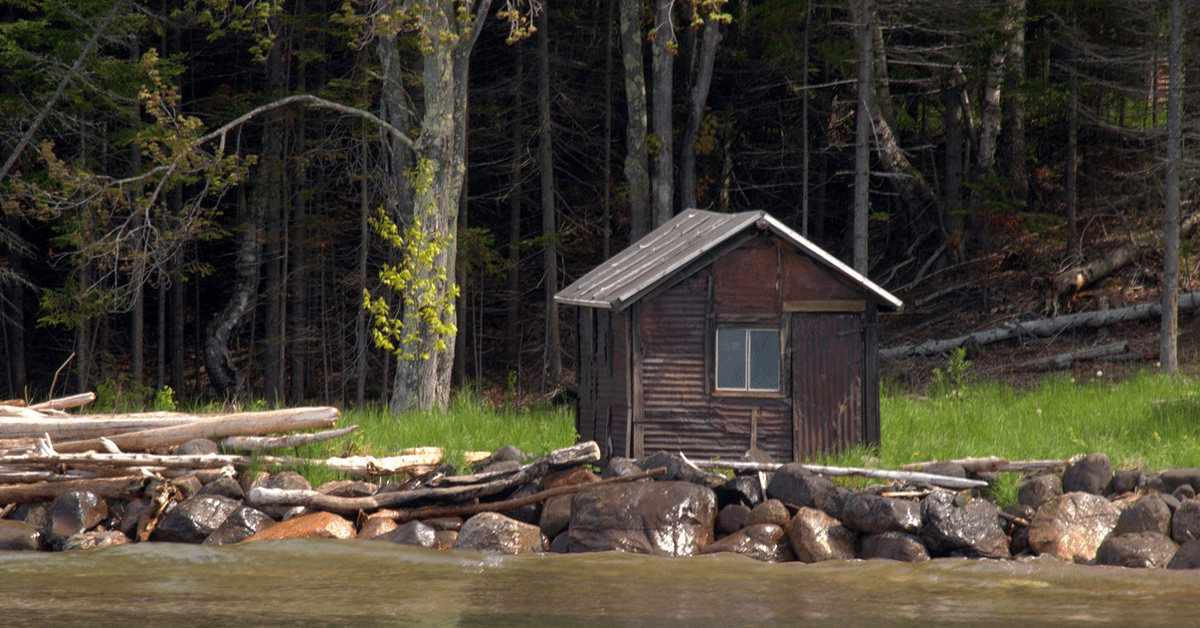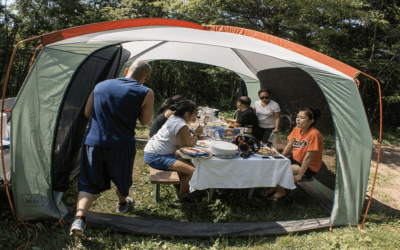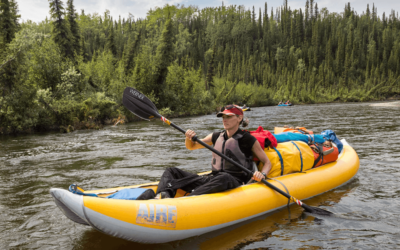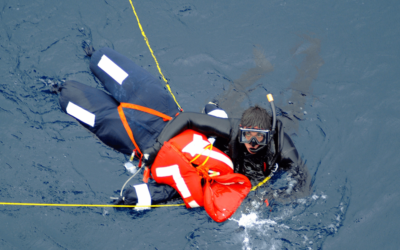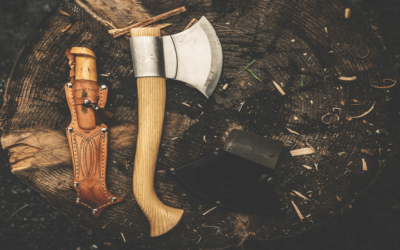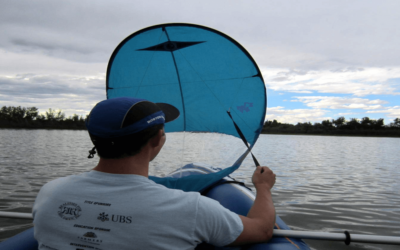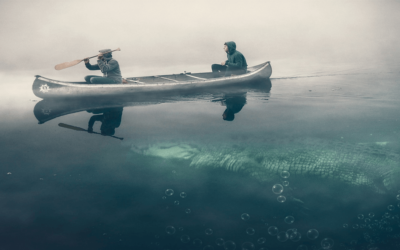Off-grid life is a choice that is based on a need for privacy and autonomy. Sometimes, the tradition of going off the grid means staying away from the electrical grid. However, some people often avoid public utilities, such as energy, water, and wastewater networks. A variety of variables must be considered when selecting a state for the off-grid lifestyle. Climate, land costs, electricity supply, and legal legislation are some of the most significant ones.
How to Choose the Best Place for Off-Grid Living?
Living off the grid seems like an exciting idea at first. However, a variety of considerations must be kept in mind before starting your new lifestyle such as:
- Cost of property
- Municipal laws and decrees
- Real estate taxes
- Limits or regulations
- Building standards and codes
- Water supply
- Rules relating to septic systems (usually controlled by federal agencies)
- Much more
To simplify matters, people have some important considerations to take into account when purchasing land for the construction of their own houses. Here are some of the topmost important factors you should consider before going off the grid.
Climate Conditions
Will you like to live in a community with all four seasons? Do you want to stay someplace nicer with more grassland, or would you like to live in a desert land? Are you fond of rain, ice, heat, or cold? It would seem simple to figure that out, but research is required. It would help if you always looked at the significant historical weather forecasts to help you plan on your off-grid experience.
Water Supply
To live, you should have a sustainable, reliable, and healthy water supply. This is true for desert areas particularly. Wilderness is cheap real estate for a reason. You can purchase 100 acres of desert land in the milder climate areas for a lesser price than a few acres of coastline land. This is because of the scarce water supplies. So, before you make your big decision, think about the water supply situation in the area.
Rules and Regulations
You must be confident that you can construct and function as you would like. This assumes you are out of the network, you are cut off from the system (or from the government-controlled energy power system), and you generate your own renewable power. Therefore, you need to know if your chosen state allows that kind of behavior and lifestyle. Some states require proper licensing, permits, and other taxes on renewable energy sources.
Moreover, building codes need to be practiced or to be identified before you make the big move. It would be amazing if you ideally chose a place with fewer or no building codes, normally meaning a distant region away from a town or a city. Some states allow residents to construct whatever they want, while others impose stringent laws on building codes.
Taxation Situation
Of course, you need lower tax rates on land. Farming property is cheaper, but it is normally a bigger chunk of land. That may be a positive thing, but it might not always be a good thing for everyone. In general, a bigger tract of land is costlier and needs a greater capital expenditure. A smaller estate in a suburban area will require lower taxes than a residential farmland property. Therefore, ensure that you are in sync with the taxation situation of the state before you decide to move.
Zoning Requirements
Try to choose a farm estate or request a rezoning or change of the county to reduce your taxation. It relies on the state and urban development agency, so you can get your land redeveloped if you can provide a valid excuse, such as gardening, micro-farming, or cattle-raising. Based on your position and surroundings, you can easily rezone for this type of service.
Best States for Off-Grid Living On A Budget
It is almost possible to live off the grid everywhere. However, some communities are better suitable than others for an independent lifestyle. Many areas are ideal for off-grid living habitats. However, most people concentrate on only one essential feature of establishing off-grid lifestyles: climatic conditions. Weather and climatic conditions are critical when using renewable energies to operate a house or refuge away from the system. However, these aren’t the only valid factors for such a lifestyle.
Let’s explore the best states that offer good options for homesteading and off-grid living according to the natural resources, communities, and regulations.
1. Colorado
The abundance of green energy options is among the factors why Colorado is a major choice. Notwithstanding the cooler temperatures, the region is very gusty and sees more than enough sun throughout the year. This allows many renewable energy sources to be used by the people. Some counties in the state have no planning laws, such as Delta County and Montezuma County. Therefore, householders must comply with national laws only.
In rural areas, property sustainability is just one major factor for selecting Colorado for your off-grid residence. The state boasts a long growth cycle with abundant wood and rock for construction equipment in just about all areas. Do not buy property in arid environments, or you will probably face a reduction in water supply and farming prospects.
Colorado is the best place to get off the grid if you don’t like the freezing seasons. The property is inexpensive, and overpopulation certainly isn’t a problem, and the current law accepts the autonomous culture. The state still has a moderate standard of living, and the crime incidents are lower than in other regions in the nation.
In certain Colorado regions, their local regulations are relaxed and sustainable development is made possible with more infrastructure. Finding clean drinking water can become challenging in some areas since much of Colorado is dry. However, finding access to clean drinking water is no real concern. Land values are very good and affordable if you move farther away from the central cities and towns.
2. Alabama
Alabama is seen by many as the best state to live off-grid in the USA. Life costs in Alabama are modest, with comparatively low operating expenses and some of the country’s lowest real estate taxes. A host of communities without construction standards are also located there. ALABAMA is a great spot for stormwater mining, as the state is precipitous (56 centimeters per year), and state legislation enables unlimited collection of water.
The harvest season is not that prolonged as several other off-grid livelihoods. However, the state has the most important pastures and meadows for agricultural production. It is strongly advisable to construct a greenhouse to extend the planting conditions. The gusty environment should make it an ideal emergency power supply for the use of wind farms. You may not find adequate growing lumber on the land for structural construction, appliances, and kindling, apart from the woodlands in the region.
You can enjoy solar power, windmills, irrigation systems and parks, and all the interesting things you can get off the grid. Chickens and other farm animals are also a common thing among off-grid enthusiasts in Alabama. Estate in remote regions is comparatively cheap, and water is abundant. Timber is also abundant, but the rock is not abundant. So, you may have to spend a little extra money while making your home.
3. Oregon
A handful of big off-grid villages, including that of the 4,000-acre property known as Three Rivers, are located in Oregon. The organization’s 75-80 participants share renewable energy source assets instead of using natural monopolies. The cost of land in Oregon is also minimal. Moreover, the state offers numerous environmental assets. Similarly, hunting and agriculture are regulated by the government, and there are minimal restrictions on these.
The Cascade Mountain range and the western portion of Oregon provide quality mineral wealth that is widely accessible. In the area, there is plenty of farming and gathering. Taxation and real estate values are low. In Cascade Mountain, strong lumber is also available on several acreages.
The government seems welcome to individuals who would like to live off the grid. The Three Rivers Recreation Area, which is running solar and water supply networks, is among the largest off-grid settlements in the nation. Moreover, Breitenbush Hot Springs, another off-grid settlement, is now quickly becoming a popular tourist destination.
Oregon is fine almost everywhere. Some deserts exist, but Western Oregon is very strong near the Cascade mountains. Most places in Oregon are covered in deserts, but areas in western and north California offer coastal redwoods. Moreover, the temperature here is a bit lighter. Spring and summer in Oregon are just as hot as in any other place, and winters are cooler. Home values are fair, and many wood properties are also accessible.
4. Missouri
Missouri has vast stretches of the agricultural landscape, which often have neither stringent boundaries nor planning laws. Off-grid houses in Missouri can absorb stormwater without limitation. Moreover, due to the quick and colder winters, the environment is outstanding for agriculture. It’s still a bureaucratic state in which homeschooling children is the norm due to limited institutions and educational resources.
The state of Missouri promotes a self-reliant mentality without a lot of hoops to leap over. You can collect rainwater without intervention from the citizens, and septic tanks do not need to be installed in community residences. There are sufficient mineral resources for constructing a house and some other buildings on most estates in Missouri. The state’s property, big and small, is just as suitable for raising cattle and agriculture.
5. Hawaii
For anyone searching for a humid, tropical environment off the grid, Hawaii is the right option for you. While housing costs may be higher and the rules of the government may prohibit certain behaviors, the luxuriant atmosphere is better. It is ideal for an outstanding farm with a lot of sunlight. It is an incredible place for off-grid living in the USA. Every year, there is a lot of precipitation and rainfall in the region, and rainwater collection is unregulated.
Hawaii is a fantasy for off-grid enthusiasts. Many assets are available for auction, and most of the property is inexpensive and isolated. Water is abundant, and wood and rock are also easily available for any construction projects.
Weather is the only disadvantage. It may get colder at times, and there’s a damp wind surrounding the region. However, they offer wonderful seasons, if you can live with them. Summer is tolerable, and it is comfortable in spring and autumn. Planning permission is available to off-grid enthusiasts, and the construction code is pretty fair for most people.
6. New Mexico
Many that want to live off the grid at the cheapest cost will find New Mexico an amazing spot. Housing costs are very cheap, and livelihoods are very low compared to other places in the nation. In Taos, New Mexico, there is also one of the most popular off-grid villages in the country. That’s where you can discover Earthship Biotecture, which contains a range of ecological homes, materials, and supplies on off-grid livelihoods.
Another wonderful place for an off-grid lifestyle is the state of New Mexico. Estate is abundant and cost-effective. Clean drinking water is not hard to get around, as well as wood and rock are required for construction. There are opportunities, and regulation is free in most districts to live off the grid. Keep away again from bigger areas of the state to find communities freer to live off the grid.
The non-coastal areas are inexpensive with quality soil. Moreover, readiness and homestay of substantial scale are increasing. Every year in September, Prepper Camp takes place. This is a three-day practice of homesteading and preservation. This environment is perfect if you are a rancher. However, in the fall, the wind hits through the plains and the pastures, and it’s brutally cold. Look to the hills to hide from the brutally cold seasons if you are looking for land in New Mexico.
Nevertheless, New Mexico is a huge state to step off of the grid. Estate rates are sensible. You can find some fine scenic estate at comparatively low rates on a stream in the hills. Clean drinking water is readily provided in most places. Wood and rock are abundant in the mountains too, but not so much on the grasslands.
7. Tennessee
Many places are trendy for off-grid living and offer mild environments. However, homestays in Tennessee could be happier if they want to encounter all four distinct seasons. Surface temps in winter will fall below freezing, making it unsuitable for farming operations all year long. However, the planting season lasts for more than half of the year. Tennessee is the right option for struggling off-grid enthusiasts as the lower housing costs will be a huge relief. Moreover, the rainwater collection regulations are quite lenient.
In Tennessee, real estate taxes are unbelievably low. Life costs in rural locations are budget-friendly. There are abundant opportunities for farming and gathering and mineral wealth. In all state districts, there is an adequate practice of growing and an amazing growth period that lasts for around 260 days a year. It is also relatively milder year after year. The region has some of the nation’s least strict rules on exchanging milk products and stormwater.
8. Utah
Utah is noted for its magnificent scenery and amazing wilderness areas, making it the paradise for outdoor enthusiasts. The state also has lower real estate values and lower real estate taxes. This is quite attractive. However, unlike certain other places, rainwater collection rules exist, which is essential for those who choose to reduce reliance on municipal water supplies.
For whatever peculiar cause, the state of Utah is always entirely ignored when it comes to the best off-grid living in the USA. There is a tremendously lower cost of housing, lower real estate taxes, lower corruption, an extraordinarily low housing expense, and plenty of environmental assets in the central part of the state.
Some jurisdictions have no permits outside municipal health service legislation on septic tanks. Moreover, they also don’t have planning codes. They also do not have a permit center or facility. So, you can build your house the way you want. The cultivation period is from late May until late September for most crops.
9. Arizona
Arizona has more than enough cheap housing and an admirable environment throughout the year. The state’s equatorial environment is a possible challenge for living off-grid in Arizona. The best choice will be for off-grid enthusiasts to make a property near significant sources of irrigation where they would dig a well. Fortunately, there is more than enough sunlight so that you can use renewable electricity to fuel your household very easily.
In the northwestern regions of Arizona, the temperature is moderate, and the forests are not limited. Housing costs are inexpensive in the same region, but water supply is probably still a problem. It would be important to buy a freshwater estate to dig a well. The estate should be near stable ponds, or you will have to transport water to your estate. The growth period is long, and the renewable electricity supply is a big hit throughout the year.
The land in Arizona is abundant and large, but groundwater is often a problem. Property in rural regions and smaller districts and cities is easily available at a lower price. Fishing and hunting are nice in Arizona, and the environment, depending on your location, is moderate to warm. Some of Arizona is a wasteland. Therefore, try to escape that place if the sun is not your favorite one. However, you can find great offers there if you’re intelligent and investigate.
10. California
California is the last option one on our list. It may seem like an odd and unwise choice given that the state is widely in sync with modern advancements and technological structures. However, the living conditions of this state can offer an amazing off-grid lifestyle experience like great weather but the lifestyle & laws not affordable for homestead living.
This area is perfect for off-grid accommodation due to its cool climates and minimal real estate taxes and land values. Clean drinking water is also easily available. The amount of off-grid societies that operate in the community is also appreciated by those looking for partnerships in their healthy lifestyles.
Development control and local legislation are appropriate to live off the grid. The property costs and the living costs are lower. Moreover, the crime statistics are minimal in non-tourist and rural regions. Usually, there are plenty of environmental assets like wood, groundwater, and stone. Especially in comparison to a few southeast and border states, the harvest season is small, but you could improve agricultural output with greenhouse and enclosed cultivation.
Northern California has plenty of decent farmland and is relatively affordable. Unlike many northern lands, there is a gentler environment, access to clean drinking water, less stringent regulations, lower income tax, and stable property values. SoCal, one of the major off-grid settlements in Northern California, is amazing. However, it is overcrowded and costly. There are so many inhabitants and laws on land you can easily find your place here.
What Do We Have to Say?
Many states offer the best experiences for off-grid living in the USA. However, the states mentioned above offer a beautiful combination of gentler climates, lenient laws, minimal distractions, and abundant environmental assets. So, you can research these states and choose your favorite option based on your requirements.
If you want to go off the grid with your kids, it would be wise to choose a state with a good homeschooling system. On the other hand, if you are alone, you can choose any of the coastal states and live your life as you please. However, you need to research well before the big move.

